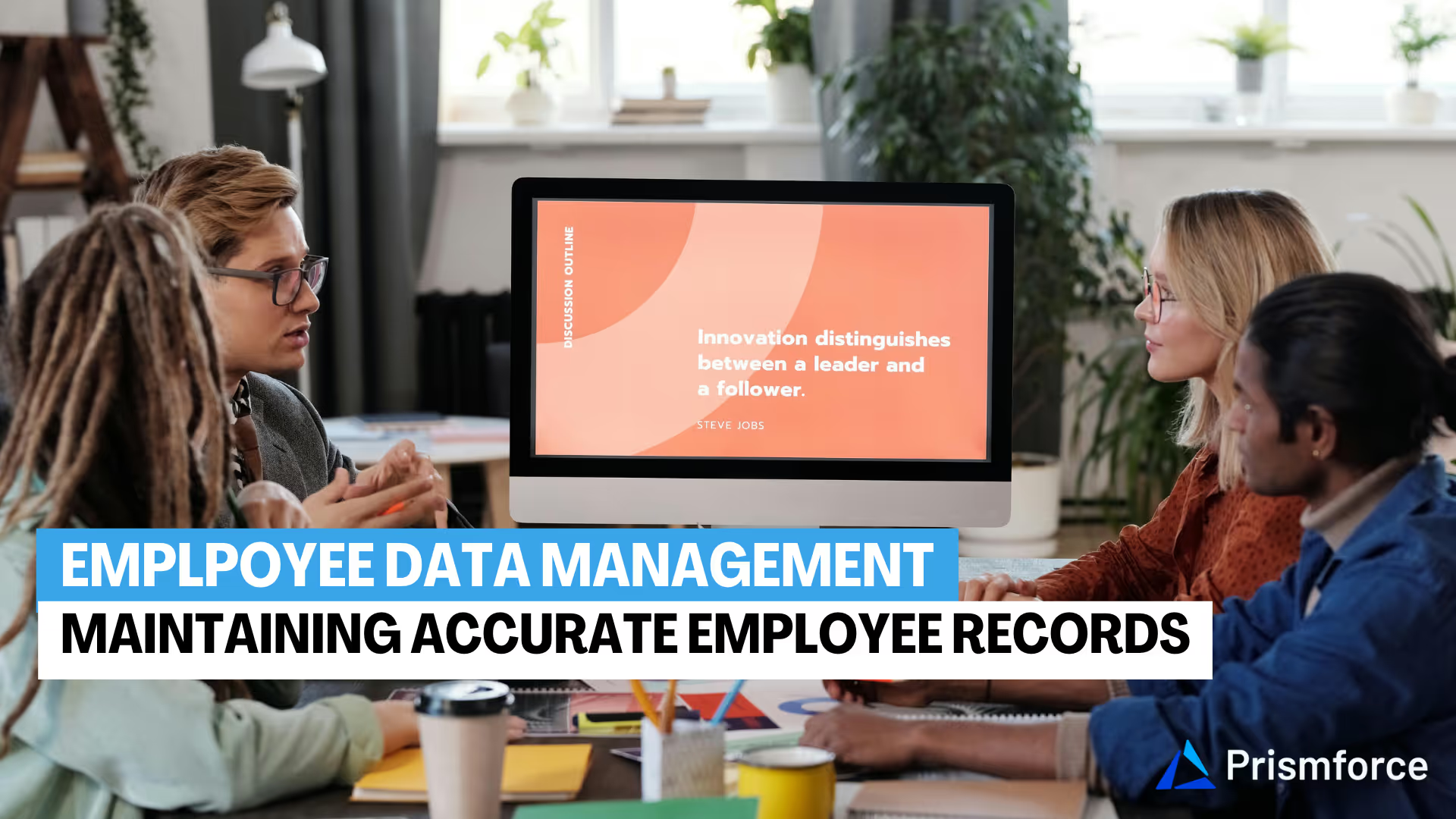Talent Supply Chain
Blogs

Talent Supply Chain
Why Skills Intelligence is the Core to Talent Transformation?
Most companies don’t lack talent—they lack visibility into it. Prismforce uses AI-powered skills intelligence to unify scattered skill data, enabling faster staffing, stronger internal mobility, and smarter workforce decisions.

Talent Supply Chain
Workforce Intelligence Framework: For a Future-Ready Workforce
Implementing a skill intelligence framework empowers organizations to proactively manage workforce capabilities, bridge skill gaps, and enhance agility.

Talent Supply Chain
The Rise of the Superworker: What It Means for Workforce Planning in B2B SaaS
Superworkers in the B2B SaaS industry are highly skilled professionals who leverage AI, automation, and SaaS tools to drive innovation and operational efficiency.

Talent Supply Chain
How to Implement a Talent Supply Chain Strategy in Your Organization
This article introduces the concept of Talent Supply Chain Strategy as a systematic approach to managing organizational talent needs. Rather than treating talent acquisition as a reactive process, this strategy advocates for a proactive, supply-chain-like system that ensures the right talent is available at the right time.
The post outlines several key steps for implementation: establishing a comprehensive resourcing strategy, anticipating future talent demands through data analytics, aligning people and processes, leveraging analytics for measurement, developing strategic partnerships to expand talent pools, and fostering continuous learning within the organization.
The benefits of this approach include improved workforce planning, enhanced talent acquisition, increased organizational agility, cost optimization, and competitive advantage. The article also addresses common implementation challenges such as resistance to change, lack of skilled resources, integration with existing processes, and performance measurement.
The post concludes by promoting Prismforce's AI-powered platform as a solution for implementing this strategy, highlighting features like advanced analytics, demand forecasting, talent marketplace access, skill development tracking, and performance optimization tools.

Talent Supply Chain
The Ultimate Guide to Evaluating Candidates for HR Professionals
Learn how structured candidate evaluation workflows can help you assess skills, cultural fit, and potential effectively. Discover strategies to enhance hiring efficiency, improve candidate experiences, and achieve long-term success for your organization.

Talent Supply Chain
Skills Intelligence: A Leader’s Guide to Address Workforce Planning in Enterprise Tech
Skills intelligence is critical for aligning workforce capabilities with business goals. This data-driven approach involves assessing and leveraging employee skills to close gaps, optimize resource allocation, and drive agility. By adopting AI and machine learning, organizations can transition from manual skills tracking to real-time insights, enabling proactive talent acquisition, development, and deployment. Core elements include a standardized skills taxonomy, robust assessments, and advanced analytics to identify patterns and predict future needs. Businesses leveraging skills intelligence see tangible benefits: improved recruitment efficiency, targeted upskilling initiatives, better project alignment, and reduced attrition through continuous learning opportunities. For leaders, embracing this strategy ensures adaptability in the face of rapid technological changes and talent scarcity. Tools like Prismforce provide AI-driven solutions to visualize skills, identify gaps, and develop tailored workforce plans. Skills intelligence is no longer optional—it's a competitive necessity for thriving in digital transformation. Start today and future-proof your workforce!

Talent Supply Chain
Integration with Learning Management Systems (LMS): Linking Performance to Training Initiatives
Integrating Learning Management Systems (LMS) with performance data enhances employee development by linking training to real-time metrics, boosting engagement, retention, and agility.

Talent Supply Chain
Employee Data Management: Maintaining Accurate and Up-to-date Employee Records
Employee Data Management empowers tech companies to align talent with business goals, overcome data challenges, and drive innovation through data-driven strategies.
.avif)
Talent Supply Chain
The Workforce Management Blindspot: Why CEOs Overlook Internal Talent Potential
CEOs often overlook the untapped potential within their workforce, focusing on external hires instead of developing internal talent. The University of Phoenix’s Career Optimism Index revealed that employers struggle to find qualified candidates, often missing the talent already in their ranks.
Unlocking internal talent fosters continuous learning, increases employee loyalty, and drives innovation. However, rigid structures, unconscious biases, and a short-term focus hinder this potential. To address these challenges, companies must adopt skill mapping, performance evaluations, career pathing, and cross-functional collaboration.
Successful strategies include mentorship programs, job rotations, and leadership development. Leading companies like Google, Accenture, and IBM have leveraged internal talent to drive growth. At Prismforce, we provide tools like Skillprism to help businesses map talent, assess capabilities, and unlock employee potential. By embracing internal talent, companies can build a dynamic, resilient workforce poised for long-term success.

Talent Supply Chain
The CHRO's Paradox: Why Talent Shortages Persist Despite High Employment
The talent shortage paradox challenges CHROs to align talent strategies with business goals while addressing skills gaps. A strategic approach to workforce planning, upskilling, and talent management is essential to ensure organizational growth and resilience.

Talent Supply Chain
Internal Mobility: A Strategic Playbook to Drive Exponential Growth
Internal mobility is a strategic approach to talent management that empowers employees to explore new roles and career paths within an organization. By fostering employee development, reducing turnover, and improving organizational knowledge, internal mobility offers numerous benefits. To implement a successful internal mobility strategy, organizations should assess their needs, develop a framework, identify and develop talent, foster a culture of continuous learning, and effectively communicate opportunities. Prismforce, a leading internal mobility platform, can help organizations streamline their processes and unlock the full potential of their workforce.

Talent Supply Chain
Upskilling and Reskilling: How to Engage Your Workforce for Maximum Impact
Upskilling and reskilling are essential strategies for keeping a workforce competitive and adaptable in a rapidly changing job market. By fostering a culture of continuous learning, organizations can bridge skill gaps, enhance productivity, and support long-term employee growth.
